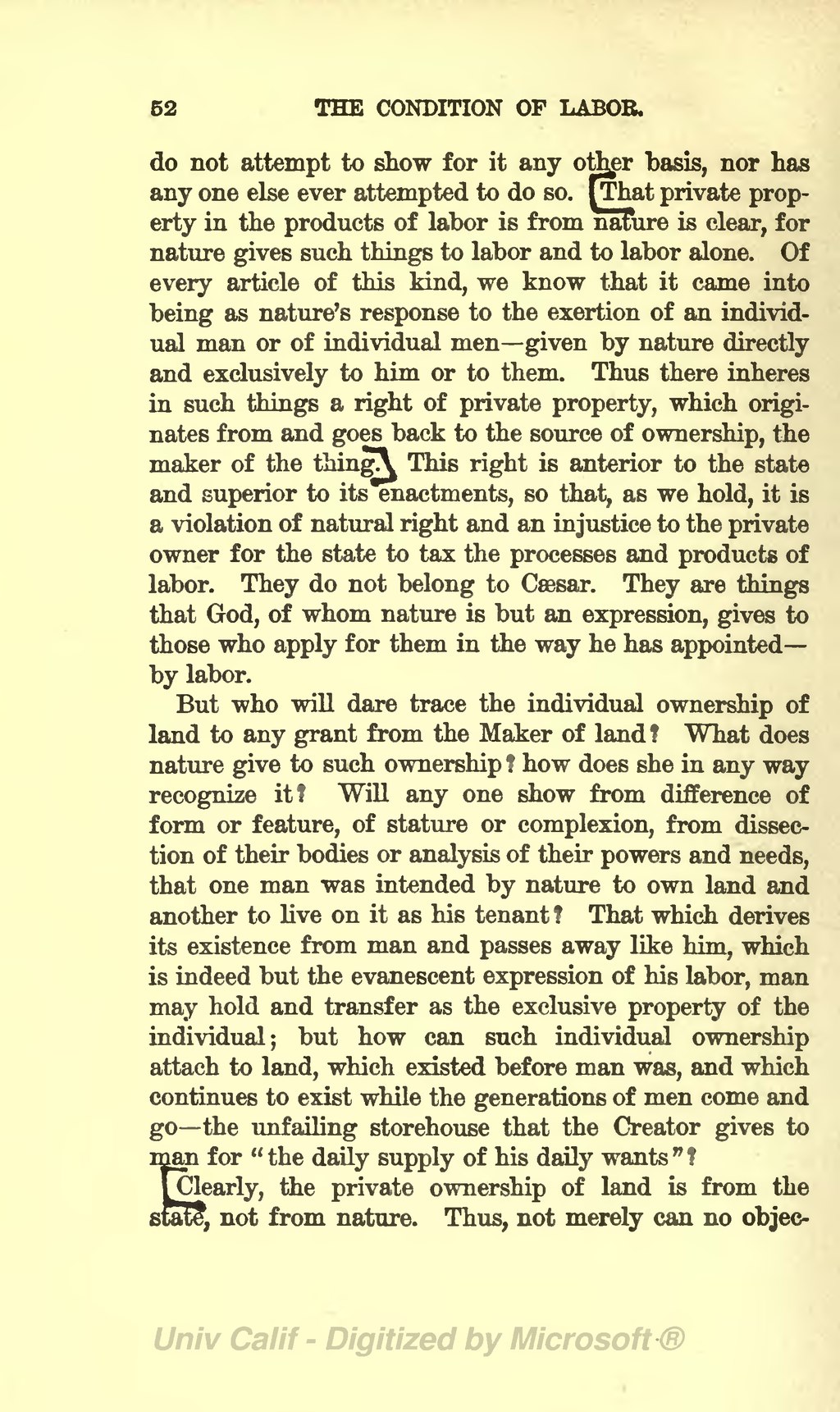52 THE CONDITION OF LABOR.
do not attempt to show for it any otljer basis, nor has any one else ever attempted to do so. [That private prop- erty in the products of labor is from naTure is clear, for nature gives such things to labor and to labor alone. Of every article of this kind, we know that it came into being as nature's response to the exertion of an individ- ual man or of individual men given by nature directly and exclusively to him or to them. Thus there inheres in such things a right of private property, which origi- nates from and goes back to the source of ownership, the maker of the thing\ This right is anterior to the state and superior to its enactments, so that, as we hold, it is a violation of natural right and an injustice to the private owner for the state to tax the processes and products of labor. They do not belong to Caesar. They are things that God, of whom nature is but an expression, gives to those who apply for them in the way he has appointed by labor.
But who will dare trace the individual ownership of land to any grant from the Maker of land ? What does nature give to such ownership ? how does she in any way recognize it? Will any one show from difference of form or feature, of stature or complexion, from dissec- tion of their bodies or analysis of their powers and needs, that one man was intended by nature to own land and another to live on it as his tenant ? That which derives its existence from man and passes away like him, which is indeed but the evanescent expression of his labor, man may hold and transfer as the exclusive property of the individual; but how can such individual ownership attach to land, which existed before man was, and which continues to exist while the generations of men come and go the unfailing storehouse that the Creator gives to man for " the daily supply of his daily wants " ? ^Clearly, the private ownership of land is from the state*, not from nature. Thus, not merely can no objec-
�� �
